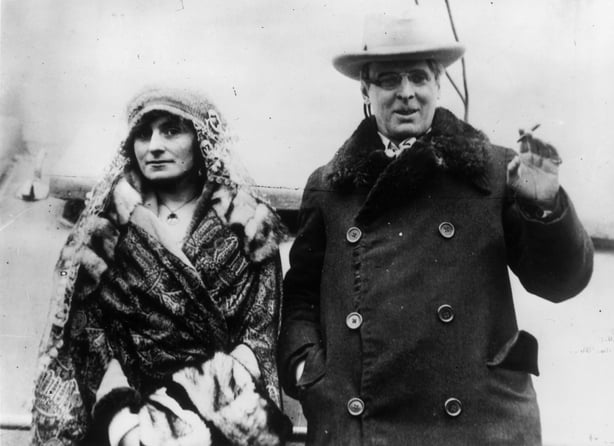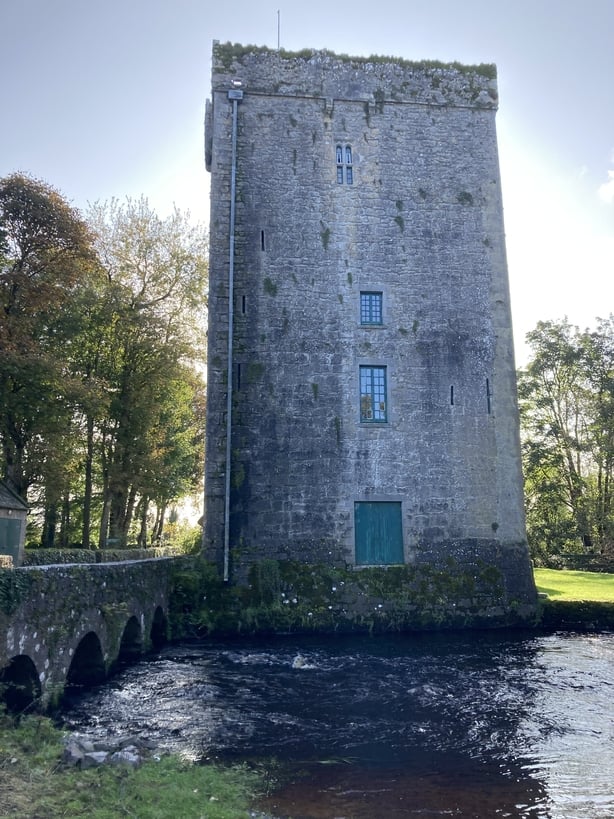Analysis: Then and now, the poet was identified with Ireland in a way contemporaries like Oscar Wilde and George Bernard Shaw never were
Nobel Prize committees keep their deliberations under wraps, so the reasoning behind their decisions remains mysterious. Ellen Mattson, member of the Swedish Academy, insists that "literary merit" is "the only thing that counts", when awarding the Nobel Prize in Literature. Still, with only 17 women given the award since 1901, politics have clearly played a role.
This year the Nobel Prize in Literature was won by the Norwegian writer Jon Fosse, for plays and prose composed "in the wake of modernism". One hundred years ago, on this day in 1923, the winner was the Irish modernist William Butler (WB) Yeats. But instead of disputing each year's winner, scrutinising the contexts around these decisions serves as a reminder to go back to the work.
Yeats was open-eyed about the reasons for the prize. It was not for him but for Ireland. The Academy’s public citation praised "his always inspired poetry, which in a highly artistic form gives expression to the spirit of a whole nation". Yeats had been nominated for three consecutive years leading up to 1923, just as that nation took its tottering first steps. When on a dark December 1922 night during the Civil War the Irish Free State was officially born, it surely helped him edge out competition from Thomas Mann and Thomas Hardy.
We need your consent to load this rte-player contentWe use rte-player to manage extra content that can set cookies on your device and collect data about your activity. Please review their details and accept them to load the content.Manage Preferences
From RTÉ Radio 1 This Week, doubts rise over WB Yeats quote on Dublin City Marathon medal
Made a senator by the new government (it helped he had once joined the Irish Republican Brotherhood), Yeats then and now was identified with Ireland in a way that contemporaries such as Oscar Wilde and George Bernard Shaw (who received the prize in 1925) never managed. This also made him a target for dissident attacks. Bullets broke the windows of his Dublin house; an armed guard was not long stood down when the Nobel news came.
Yet official Ireland's adoption of Yeats has allowed him to become what he warned against, a "smiling public man". His actual political interventions (against censorship, for libraries and progressive education, and on behalf of minority and women’s rights when the new state banned divorce) are forgotten amid vague associations (which he did not discourage) with authoritarian politics and the Ascendancy class.
WH Auden predicted how 'the words of a dead man / Are modified in the guts of the living'. But while The Second Coming is the most-quoted poem of the last century, Yeats's words have been flattened into bromides for tea towels or airport terminals, or traded for phantom quotations. That a committee or AI-generated tourist-board phrase 'There are no strangers here; Only friends you haven’t met yet' was attributed to Yeats on a Dublin Marathon medal shows how the pickling machinery of the heritage industry obstructs actual reading. Unsurprisingly, he divides Leaving Cert students who are told to read the poems but also what to say about them.
We need your consent to load this rte-player contentWe use rte-player to manage extra content that can set cookies on your device and collect data about your activity. Please review their details and accept them to load the content.Manage Preferences
From RTÉ Archives, Irish writer Frank O'Connor pays tribute to poet WB Yeats at his graveside (Broadcast 13 March 1966)
This would be a good year to remember that Yeats was not only a penetrating poet but a cultural revolutionary. He used his speech in Stockholm to accept the award on behalf of Ireland's Abbey Theatre, and "all those workers, obscure or well-known" that created it, especially his collaborators Augusta, Lady Gregory and J.M. Synge. This generous gesture has been dismissed as self-deluding log-rolling.
Yet Synge was right that "style" was "born out of the shock of new material", and the Abbey players' tours to America inspired the writers of the Harlem Renaissance and others like Djuna Barnes and Eugene O’Neill (who won the Nobel in 1936). Poems don't easily survive translation, but Abbey dramas went around Europe: in Italy, for instance, Carlo Linati produced editions of each of the founders’ plays.
As a revolutionary, Yeats was strikingly practical. His reply when the Irish Times editor told him of the prize on the telephone ("How much, Smyllie, how much is it?") has gone into folklore, but the prize money staunched the "deluge of impecuniosity" left by his artist father and paid the debts of the pioneering Cuala Press and embroidery division run by his sisters Elizabeth and Lily Yeats.

Soon Yeats would help establish a strings-free government subsidy for the Abbey, a dance school, and the Peacock theatre for experimental drama. His plays, books, and broadcasts allowed for ready collaboration with artists and musicians. Yeats is nearly up there with Bob Dylan and the Indian poet Rabindrinath Tagore as Nobel Prize winners whose work became known as songs.
His early song-like lyrics, coloured by researches into magic and mythology, certainly influenced the award. Yeats, in fact, was first nominated in 1902, and when he finally won, AC Benson wrote to congratulate him on his "detachment from the urgent present".

But clearly Benson had not been reading his recent stuff. Whether the Nobel committee knew it or not, they were giving the prize to a writer urgently attached to the present. The eviscerating Nineteen Hundred and Nineteen and plangent Meditations in Time of Civil War (composed at Thoor Ballylee while reading James Joyce's suppressed Ulysses) dissected the violent foundation of the State with brutal honesty.
As the prize arrived, Yeats was still revising a powerful, disturbing sonnet about rape and consent, Leda and the Swan. Condemning the Nobel award "provided by a deceased anti-Christian manufacturer of dynamite" and especially Yeats's "foul swan song", the Catholic Bulletin betrayed telling misgivings given Yeats's hints about the Christian annunciation not being consensual.
When these poems appeared in The Tower (1928) most agreed with Yeats that it was "the best book that I have written" – probably the best any writer has produced after getting the prize. Joyce's congratulatory telegram made sense. Like Jon Fosse, Yeats gave "voice to the unsayable", managing to stay a restless contemporary – worth reading, listening to, performing, dissenting from, but not ignoring.
The author is co-editor of the forthcoming Edinburgh Companion to WB Yeats and the Arts.
The views expressed here are those of the author and do not represent or reflect the views of RTÉ



